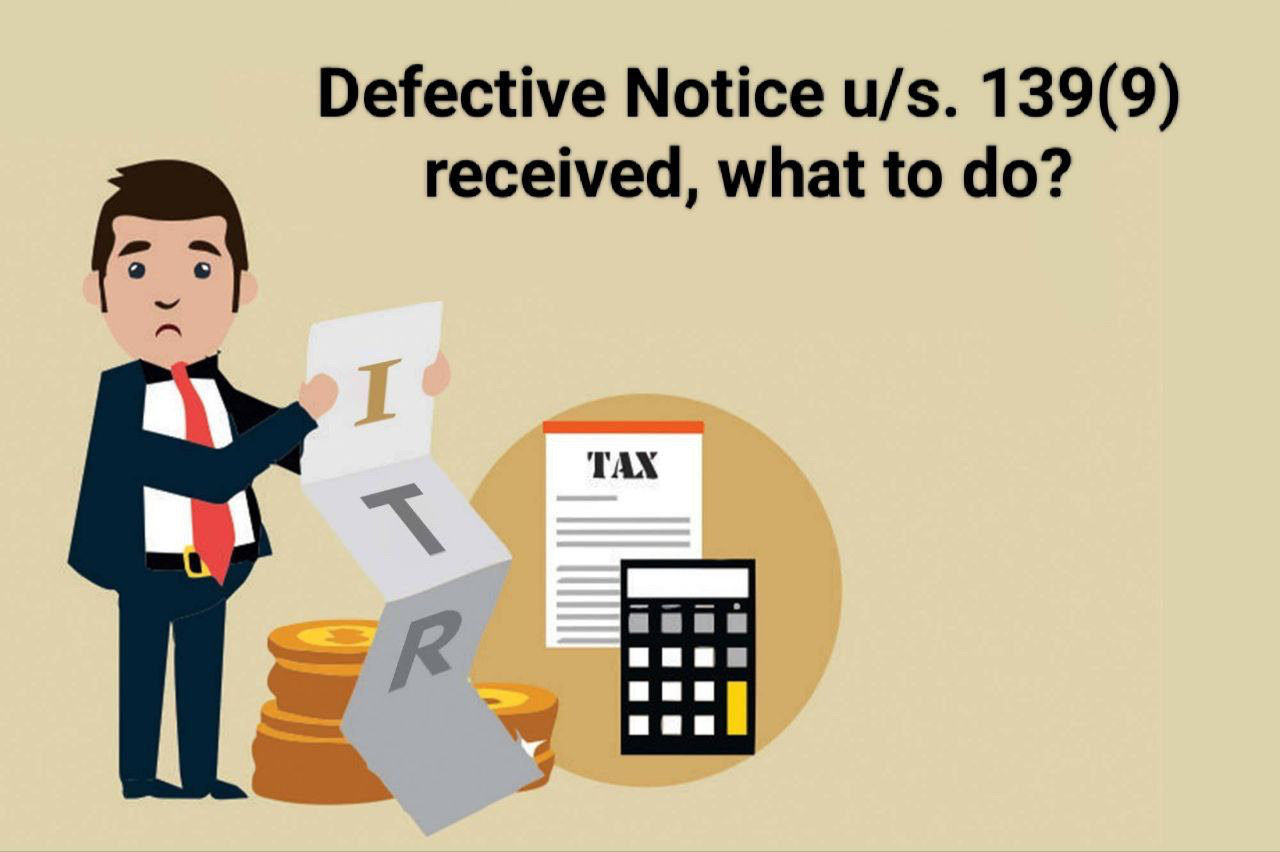While filing the income tax return one must ensure that correct information is duly reported. The ITR filing must be done within the due date considering income from all the sources. One must comply with all the income tax provisions while availing tax deductions and computing tax liability.
Why defective notice?
No matter how much one tries to be a perfect ITR filer there are chances that mistakes or errors could be committed. Such mistakes or errors may be due to misreporting of information.
In the ITR form one must disclose the information in the respective schedules, if such information is not well reported it turns the ITR form as incomplete or inaccurate for processing and thus this attracts defective notice.
The taxpayer whose ITR has been termed defective will receive defective notice on registered email by the IT department. You can check the defective notice by logging into your Income tax Portal.
Reasons for defective notice?
Income not matching with Form 26AS
Form 26 AS carries income and TDS information. The amount of income and TDS in Form 26AS must match with the amounts reported in ITR. If there is a mismatch, then for such discrepancies lead to defective notice.
ITR form not filled correctly
There are certain mandatory columns, schedules to be filled in the ITR form e.g., Deduction details, TDS details, Income details, Tax paid challan details and other particulars. If the ITR form is not filled correctly covering the requisite details this may attract defective notice.
Financial statements information not filled
When the taxpayer is earning business income, he needs to report the balance sheet & profit loss statement. In case such information is not filled and incomplete ITR is submitted it will lead to defective notice.
ITR filed as tax payable
In case the tax was payable by the taxpayer, and he fails to pay such tax OR when the taxpayer has actually paid the tax but forgot to mention the tax paid challan details. The ITR submitted will be defective.
ITR form submitted, and Tax Audit form not submitted
In case when tax audit is applicable to the assessee. The books of accounts need to be audited by a CA and before filing an ITR form, a tax audit report needs to be submitted. The information of tax audit filed needs to be disclosed in ITR form as well. In case the assessee submits the ITR form without disclosing details of tax auditor and tax audit report the ITR form will be termed as defective.
Responding to notice

To correct the defect a thorough understanding as to what points were missed at the time of original ITR filing needs to be analyzed. Depending on the criticality of the case and the defect reason we need to check whether Corrected ITR needs to be filed or Revised ITR needs to be filed.
Revised ITR will be required to be filed in case there are major errors e.g. income from other sources is not accounted for, an increase in tax demand, change in tax deduction amount etc.
Corrected ITR will be required to be filed when the errors are prima facie.
While filing responses the corrected/revised ITR file needs to be prepared and further such a corrected/revised file needs to be submitted.
While filing a response to the defective notice, the tax payer needs to log into the income tax account. Under the e-proceeding tab, online response needs to be filed. There will be two options Agree or Disagree with the defect. In case the taxpayer Disagrees with the defect he/she needs to submit a detailed reason for disagreement. In case the taxpayer Agrees with the defect then in such case Corrected ITR filed needs to be uploaded and final submission needs to be done.
Click here to understand different Types of ITR’s : Types of Income Tax Returns: Understanding the Differences –
Time limit to correct the defect.
Once the taxpayer receives the defective notice a timeframe of 15 days is available to respond to the notice. It is obligatory for the taxpayer to correct the defect and file an appropriate response within the given timeline.
Failure to respond to the notice.
In case the taxpayer fails to respond to the notice the ITR originally filed will be treated as Invalid. The case will be taken as No ITR has been filed for the year and the IT rules for non-filing of ITR like late fees, interest etc. will be applicable.
Summary
The process to correct the defect can be addressed as simple but complex. Every problem has a solution. With expert knowledge the notice can be tackled and closed without much delay. Once you receive a defective notice it is always advisable to take help of a tax professional and then submit a proper response.

